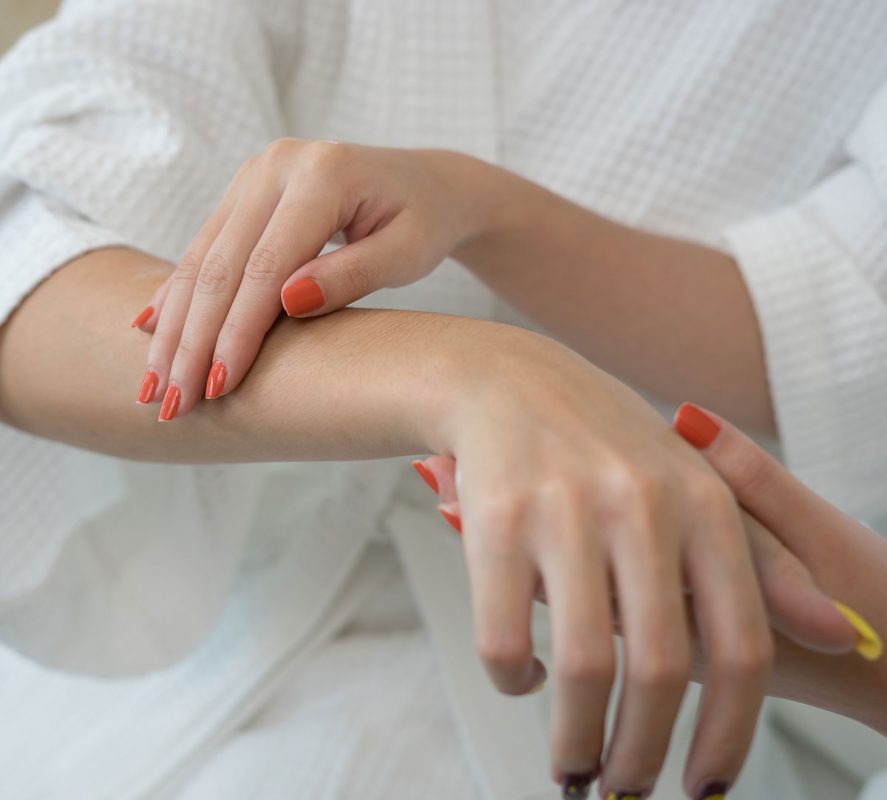
Safety And Storage
Whilst essential oils are extremely beneficial for the body and mind in many ways, they are concentrated and potent; therefore, they should be used with reasonable care. High-quality oils are safe to use if you follow a few safety tips.
Safety
Always remember that only a small amount is needed for therapeutic benefit. Furthermore, essential oils should never be applied to the eyes or ear canals, and after applying essential oils, you should avoid touching your eyes. If you do get any essential oil in your eye, place a drop of carrier oil, such as fractionated coconut oil, into the eye and blink until the oils clear. Don’t use water, as oils and water don’t mix or dilute.
Some oils are ‘warm’ and should be diluted before topical application. As with internal use, you should always check the advice for each specific oil. Be aware that topical application of certain oils may be a temporary irritant to delicate or sensitive skin. Furthermore, some essential oils, including cold-pressed citrus oils, are photosensitive, meaning that they react to sources of UV rays. Photosensitivity and Phototoxicity apply to topical use of essential oils only, whereas, they do not pose the same risk internally. Therefore, it is best to wait a minimum of 12 hours after topical application of these oils before exposure to UV rays.
Essential Oils that may produce Phototoxic or Photosensitive reactions include: AromaTouch®, Bergamot, EasyAir®, Cheer®, Citrus Bliss®, Elevation®, Forgive®, Grapefruit, InTune®, Kumquat, Lemon, Lime, Motivate®, On Guard®, Purify®, Smart & Sassy®, Tangerine, Wild Orange, Zendocrine®.

Certain essential oils are not recommended for use during the full term of pregnancy, especially the herb oils. Internal use of peppermint oil should be avoided while nursing, as it can affect milk supply. There are however certain oils such as Lavender, Roman Chamomile and Mandarin which can provide centering and comfort to the mind and body during this time.
If you suffer from any critical health conditions, it is best to consult a healthcare professional or qualified aromatherapist before using essential oils, and research specific oils before usage.

Storage
The compounds in essential oils are best preserved when stored away from light, heat, air, and moisture. Long-term exposure to oxygen can break down the chemical makeup of an essential oil, and citrus and blue-tinted oils are particularly prone to this. It is best to keep these types of oils refrigerated if they will be stored for longer than a year. Adding a carrier oil can also help to slow the oxidation process.
If open bottles will be kept for a long time, keep air space to a minimum by combining partially used bottles. However, some essential oils such as myrrh and sandalwood improve with age.
Essential oils can also be flammable, so ensure that they are kept away from open flames, sparks, and fire hazards.
